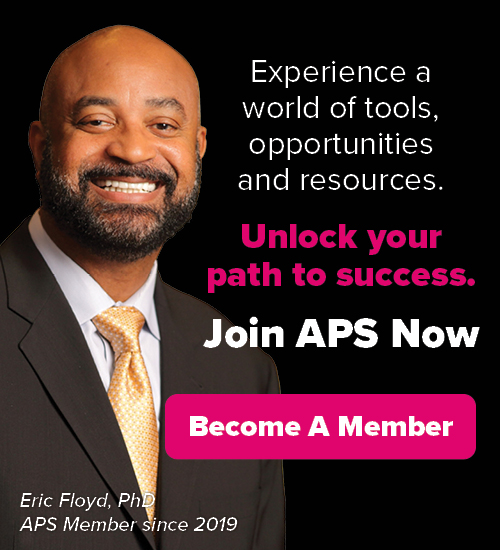- Membership & Community
-
Publications & News
- Physiology Journals
-
Newsroom
-
The Physiologist Magazine
- 2019
- 2020
- 2021
- 2022
- 2023
- 2024
-
In Depth
- In Depth—The Bear Necessities
- In Depth: Understanding Circadian Rhythms
- In Depth: Understanding Data
- In Depth: Exercise Physiology: Take Your Medicine at the Gym
- In Depth: Neurodegenerative Disorders
- Imaging Methods Unveil the Invisible
- Rewiring the Brain: Breakthroughs in Neural Therapy
- What’s Coming Next for GLP-1 and Metabolic Disease Treatment
- Understanding the Effects of Maternal Exercise
-
Mentoring Forum
- Net Worth
- Take Care
- You … In Charge
- Work. It. Out.
- Working Off-site
- Location, Location, Location?
- Student Support
- Progressing to Postdoc
- Relationship Building
- Let’s Get It Started
- What Do We Value?
- It’s a Postdoc Life
- Coronavirus Contributions
- Creative Communications
- Selection Process
- Conference Connections
- Postdoc Appreciation
- Research Rewards
- Focus on Teaching
- Industry Insights
- Balance Beam
- Post Postdoc
- If You Build It
- Talk It Through
- Forward Bound
- I’ve Earned My PhD. Now What?
- University Life
- Tips for Trainees
- Time Travel
- Prepare Now for the Career You Want
- Landing a Postdoctoral Researcher Position
- Becoming a Physician-Scientist
- Mastering the Art of Science Communication
- Setting Yourself Up for Success in the Lab
- From Postdoc to Professor: Key Strategies for Success
- How to Stay Motivated in Challenging Times
- Staying Motivated Throughout Your Career
-
Policy IQ
- Policy IQ—2023 in Review: How APS Advocated on Behalf of Physiologists
- Policy IQ—Supporting Equitable Research
- NIH's Road Map to a Better Postdoc Experience
- The Career Path to Science Advocacy
- Culture of Safety: Stopping Sexual Misconduct
- Physiologists Return to Capitol Hill
- Tips for Scientists to Communicate about Animal Research
- Science Advocacy in a New Political Landscape
- Tips for Making the Call to Congress
- Science Spending Is an Investment
-
Publish with Polish
- Publish with Polish
- The Layers of Open Science
- Take Your Content From Meeting to Manuscript
- APS Journals to Highlight Women’s Health Research
- What Subscribe to Open Means for APS Members
- The 5 Pillars of Publish with Purpose
- 3 Types of Metadata Researchers Should Know About
- Navigating Open Access and New Licensing Options
- Journal Manuscript Prep Made Easy
- How to Navigate Public Access Requirements
- Under the Microscope
- Mentoring Q&A
- Evolution
- Baseline by Scott Steen, CAE, FASAE
- 2025
- Find Us on Social Media
-
The Physiologist Magazine
-
Professional Development
-
Meetings & Events
-
American Physiology Summit
- #APS2024 Overview
- Abstracts
- Awards at the Summit
- Award Lectures
- Career Networking Lunch Form
- Dates and Deadlines
- Advocate for Health Research Funding
- Hotel Information
- Information for International Travelers
- Industry Partners
- Keynote Speaker—James Rothman, PhD
- Keynote Speaker—George Brooks, PhD, FAPS
- Keynote Speaker—Holly Ingraham, PhD
- Mobile App
- NIH and NSF Program Officer Panel Discussion Form
- Physical Poster Information
- PhysioHub
- Pre-Summit Events
- Registration
- Section & Group Banquet Tickets
- Social Events
- Speaker Audiovisual Instructions
- Summit FAQs
- Summit Newsroom
- Travel & Transportation
- Undergraduate Program Book
- Liability Waiver
- Industry Partners
- 2026 American Physiology Summit
- Joseph Erlanger: Pioneering Nerve Research and APS Leadership
- 2023
- 2024
- Scientific Integrity Policy
- Exhibitor Registration Form
- New Trends in Sex Differences and Women’s Health Research
- Control of Renal Function in Health and Disease 2026
- Comparative Physiology Conference 2026
- Webinars
- Related Meetings
- Future APS Conferences
- Conference Policies
-
American Physiology Summit
- APS Awards
-
Career & Professional Development
-
Career Gateway
-
Resources
- Transcript—Leading Through Conflict and Difficult Conversations
- Transcript—Managing Conflict with Colleagues
- Transcript—Leading a Team Through Conflict
- Transcript—Providing Difficult Feedback
- Transcript—Team Dynamics and Culture Primer
- Transcript—Building a Team
- Transcript—Leading a Team Assigned to You
- Transcript—Creating a Team Culture
-
Resources
- Career Navigator
- Center for Physiology Education
- Virtual Courses
- Physiology Job Board
- APS Graduate Physiology & Biomedical Science Catalog
-
Career Gateway
-
Meetings & Events
-
Advocacy & Resources
- Policy Areas
-
Resources
- Researcher Resources
- Educator Resources
- Trainee Resources
- Student Resources
-
APS Graduate Physiology & Biomedical Science Catalog
- Des Moines University
- George Washington University
- Mayo Clinic Graduate School of Biomedical Sciences—Biomedical Engineering & Physiology
- Michigan State University
- New York Medical College
- Nova Southeastern University
- Pennsylvania State University
- Texas A&M University
- Texas A&M University Medical Physiology
- Stony Brook University
- The University of Iowa
- University of Alabama at Birmingham
- University at Buffalo
- University of Colorado
- University of Michigan
- University of Minnesota
- University of Missouri-Biomedical Sciences
- University of Nebraska Medical Center
- University of Nevada, Reno
- University of South Carolina School of Medicine
- University of Tennessee Health Science Center (UTHSC)
- University of Texas Health Science Center
- Virginia Commonwealth University
- Wayne State University
- Physiology Department Catalog Submission Form
- Boston University
- Women's Health Research Initiative
- Career Gateway
- Advocate for Science
- About APS
- Nonmembers
- $0.00
- Members
- $0.00
The American Physiological Society is committed to creating a diverse, equitable and inclusive environment where individuals can exchange ideas, feel safe, accepted and respected. The Society has developed nine core values to ensure the support of its members and a professional culture of zero tolerance for sexual harassment. In this webinar, panelists will explore how to value and support individuals from diverse backgrounds within the sciences.
The program will include discussions defining diversity, equity and inclusion (DEI) and how it is used in science, and what it means to be an ally and how to develop a network of allies.
In addition, the speakers will share their expertise for how to create an inclusive environment in the areas of:
- gender identity,
- sexual orientation,
- disability,
- and neurodiversity.
Moderator
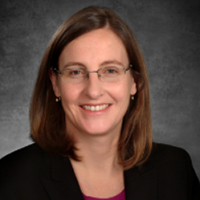 M. Lourdes Alarcon Fortepiani, MD, PhD, (she/her/hers/ella) is a professor at the Rosenberg School of Optometry at the University of the Incarnate Word in San Antonio. She received her MD and PhD in physiology at the University of Murcia in Spain and completed her postdoctoral fellowship at University of Mississippi Medical. Fortepiani is passionate about inclusive science education, diversity and equity, participating in the development of guidelines and enrichment sessions at her institution. She is a past member of the APS Women in Physiology Committee and currently serves on the APS Diversity, Equity & Inclusion Committee.
M. Lourdes Alarcon Fortepiani, MD, PhD, (she/her/hers/ella) is a professor at the Rosenberg School of Optometry at the University of the Incarnate Word in San Antonio. She received her MD and PhD in physiology at the University of Murcia in Spain and completed her postdoctoral fellowship at University of Mississippi Medical. Fortepiani is passionate about inclusive science education, diversity and equity, participating in the development of guidelines and enrichment sessions at her institution. She is a past member of the APS Women in Physiology Committee and currently serves on the APS Diversity, Equity & Inclusion Committee.
Speakers
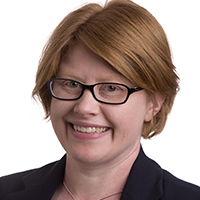 Caroline A. Rickards, PhD, (she/her/hers) is an associate professor in the Department of Physiology and Anatomy at the University of North Texas Health Science Center (UNTHSC) at Fort Worth. She obtained her PhD from RMIT University in Australia and completed a postdoctoral fellowship with the U.S. Army Institute of Surgical Research in San Antonio. Rickards is committed to addressing issues related to diversity, equity and inclusion in academic and research settings. She is the founder and chair of UNTHSC’s Women Faculty Network, past chair of the APS Women in Physiology Committee and co-director of the UNTHSC School of Biomedical Sciences course “Diversity, Equity and Inclusion in Biomedical Sciences: Fundamental Concepts.”
Caroline A. Rickards, PhD, (she/her/hers) is an associate professor in the Department of Physiology and Anatomy at the University of North Texas Health Science Center (UNTHSC) at Fort Worth. She obtained her PhD from RMIT University in Australia and completed a postdoctoral fellowship with the U.S. Army Institute of Surgical Research in San Antonio. Rickards is committed to addressing issues related to diversity, equity and inclusion in academic and research settings. She is the founder and chair of UNTHSC’s Women Faculty Network, past chair of the APS Women in Physiology Committee and co-director of the UNTHSC School of Biomedical Sciences course “Diversity, Equity and Inclusion in Biomedical Sciences: Fundamental Concepts.”
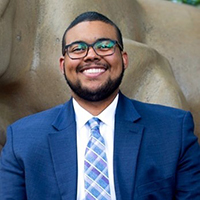 AJ Bryant, (he/him) is vice president of inclusion, diversity, equity, and accessibility (IDEA) at Out in Science, Technology, Engineering and Mathematics, Inc. (oSTEM, Inc.). He is pursuing his bachelor’s degree in kinesiology at The Pennsylvania State University. Bryant is a half Black, half Puerto Rican transman from intercity Boston and is the first transgender powerlifter at Penn State. oSTEM's, IDEA committee celebrates the many faces whose identities intersect within underserved communities of LGBTQ+ people in STEM. Bryant continues to embrace his identity and empower others.
AJ Bryant, (he/him) is vice president of inclusion, diversity, equity, and accessibility (IDEA) at Out in Science, Technology, Engineering and Mathematics, Inc. (oSTEM, Inc.). He is pursuing his bachelor’s degree in kinesiology at The Pennsylvania State University. Bryant is a half Black, half Puerto Rican transman from intercity Boston and is the first transgender powerlifter at Penn State. oSTEM's, IDEA committee celebrates the many faces whose identities intersect within underserved communities of LGBTQ+ people in STEM. Bryant continues to embrace his identity and empower others.
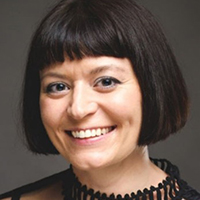 Erin A. Cech, PhD, (she/her/hers) is an associate professor in the Department of Sociology and a courtesy associate professor in the Department of Mechanical Engineering at the University of Michigan. She earned her PhD in sociology from the University of California, San Diego, and undergraduate degrees in electrical engineering and sociology from Montana State University. Cech completed a postdoctoral fellowship at the Clayman Institute for Gender Research at Stanford University in California. Her research examines cultural mechanisms of inequality reproduction in Science, Technology, Engineering and Math professions. Cech was the principal investigator on the STEM Inclusion Study organization report for the American Physiological Society.
Erin A. Cech, PhD, (she/her/hers) is an associate professor in the Department of Sociology and a courtesy associate professor in the Department of Mechanical Engineering at the University of Michigan. She earned her PhD in sociology from the University of California, San Diego, and undergraduate degrees in electrical engineering and sociology from Montana State University. Cech completed a postdoctoral fellowship at the Clayman Institute for Gender Research at Stanford University in California. Her research examines cultural mechanisms of inequality reproduction in Science, Technology, Engineering and Math professions. Cech was the principal investigator on the STEM Inclusion Study organization report for the American Physiological Society.


